Black Sand Basin - page 2
Page 1 2
Green Spring is the largest spring in Black Sand Basin east of Iron Spring Creek. On rare occasions it erupts as a geyser up to 4 m (12 feet) high.
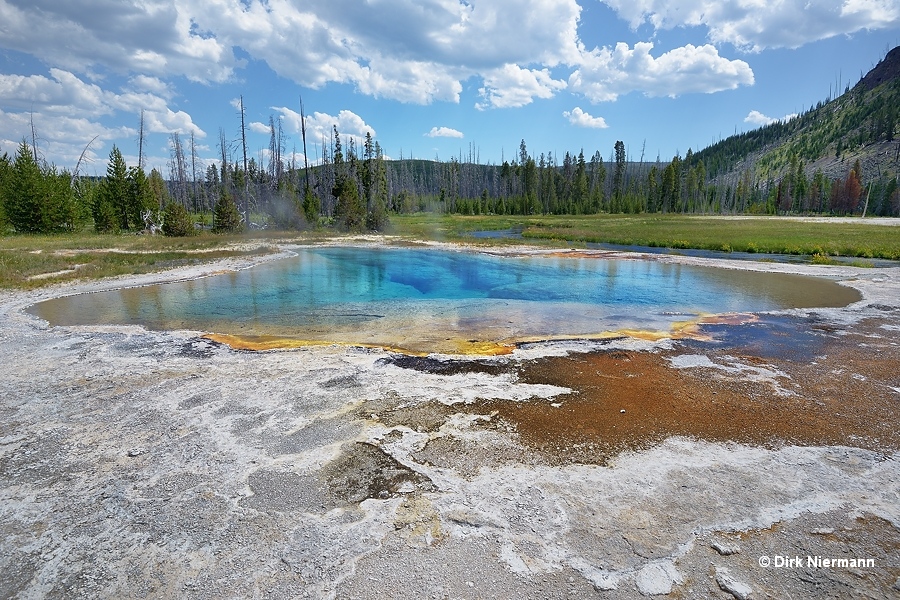
A few feet east of Green Spring the small geyser UNNG-BSB-2 may play 1 to 3 feet high. Activity is quite rare, though.
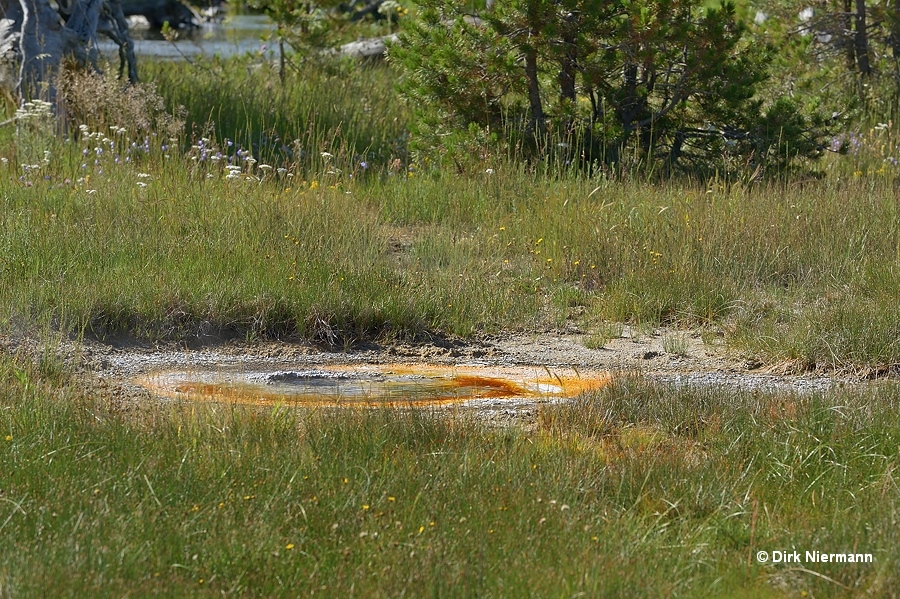
On the west side of Iron Spring Creek the boardwalk branches off to Emerald Pool. Part way a shallow spring can be observed, called White Sand Spring, capable of small eruptions.
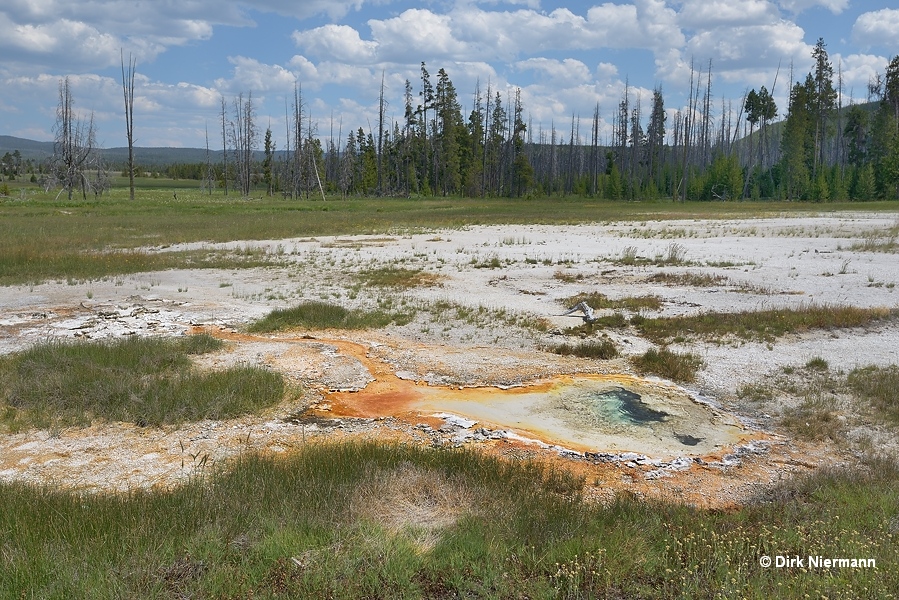
In the time from 2013 to 2024 White Sand Spring replaced its irregular drop shape with a nearly circular contour.
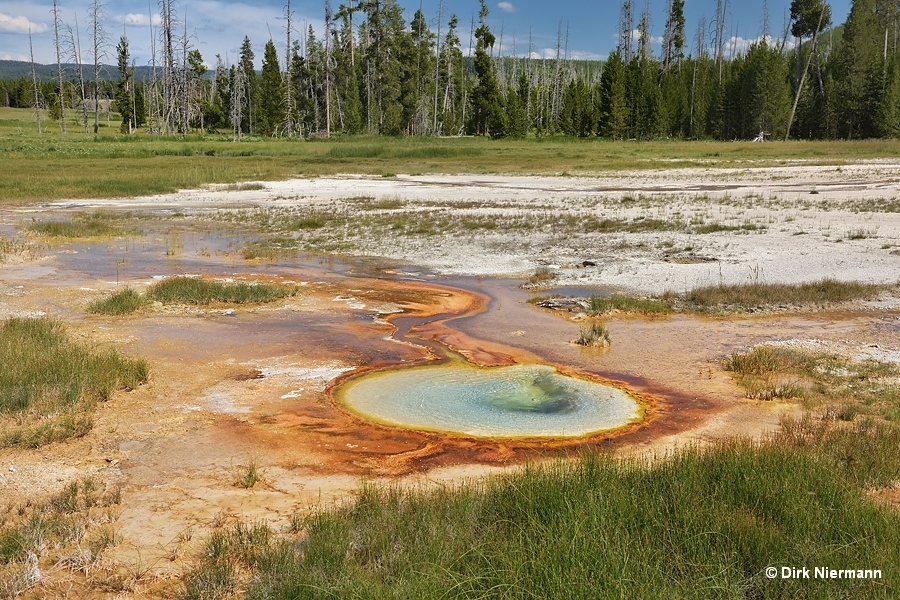
Presumably Emerald Pool is the most widely known spring of Black Sand Basin. It's no geyser and the dark green color indicates a temperature low enough for yellow thermophilic bacteria to grow on its walls.
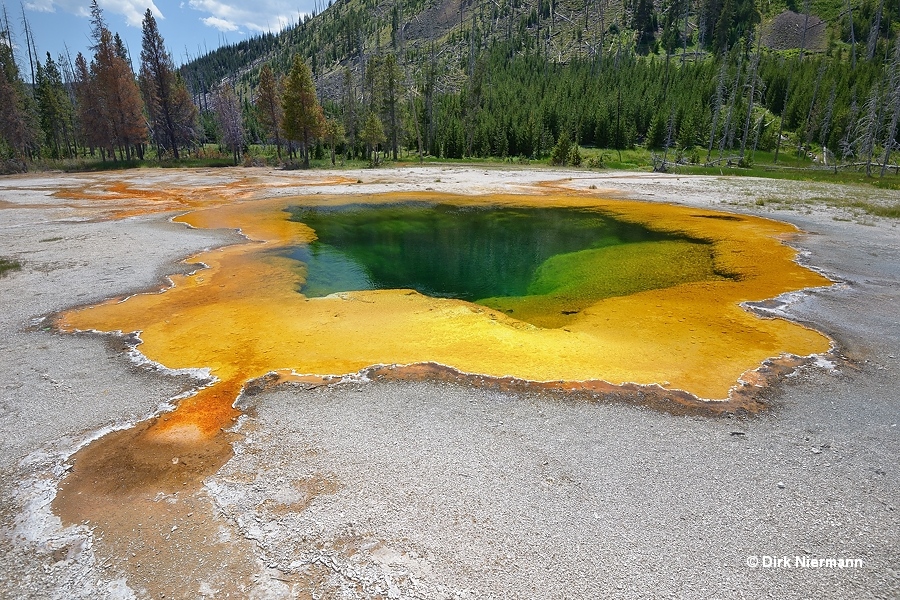
The northern branch of the boardwalk passes several springs before it ends at Sunset Lake. Coming from the south, the first spring is Cinnamon Spouter, a geyser with nearly perpetual activity.
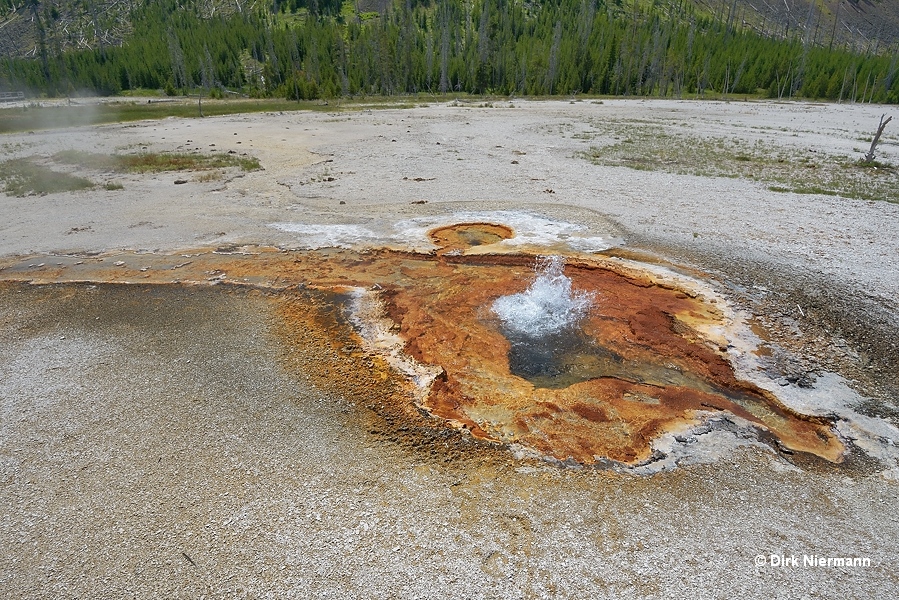
A little more than 10 years after the photo above had been taken there are some developments of Cinnamon Spouter discoverable. Generally, the power of the eruptions seems to have increased, in particular for the rear vent, which has also grown significantly. Meanwhile it is informally called "Cinnamon West" and regarded as a geyser on its own.
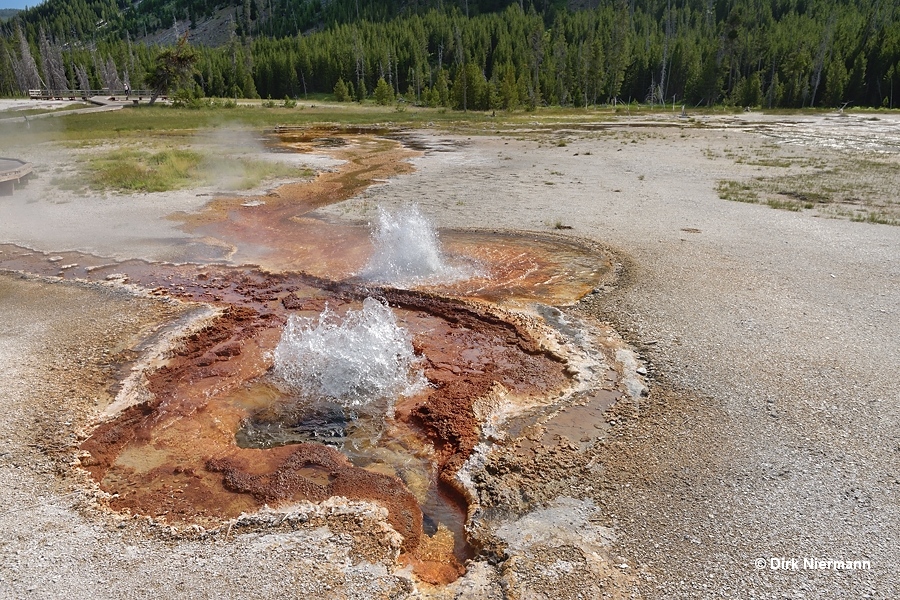
Concerning two features across the boardwalk from Cinnamon Spouter the available information is contradictory. T. Scott Bryan's map shows the position of Handkerchief Geyser south of the perpetual spouter UNNG-BSB-5 and Handkerchief Pool, while the RCN Database lists Bryan's perpetual spouter UNNG-BSB-5 as Handkerchief Geyser. Here I decided to go with T. Scott Bryan's version, supported by Rocco Paperiello's detailed Black Sand Basin History. According to Paperiello, the current blue pool does not excactly match the original Handkerchief Geyser, because latter gave birth to an adjoining vent in 1997, which took over the spouting activity. The following photo lines up the five major features in this section (front to back): Handkerchief Geyser, UNNG-BSB-5, Handkerchief Pool, Rainbow Pool, and Sunset Lake (hard to see through the steam).
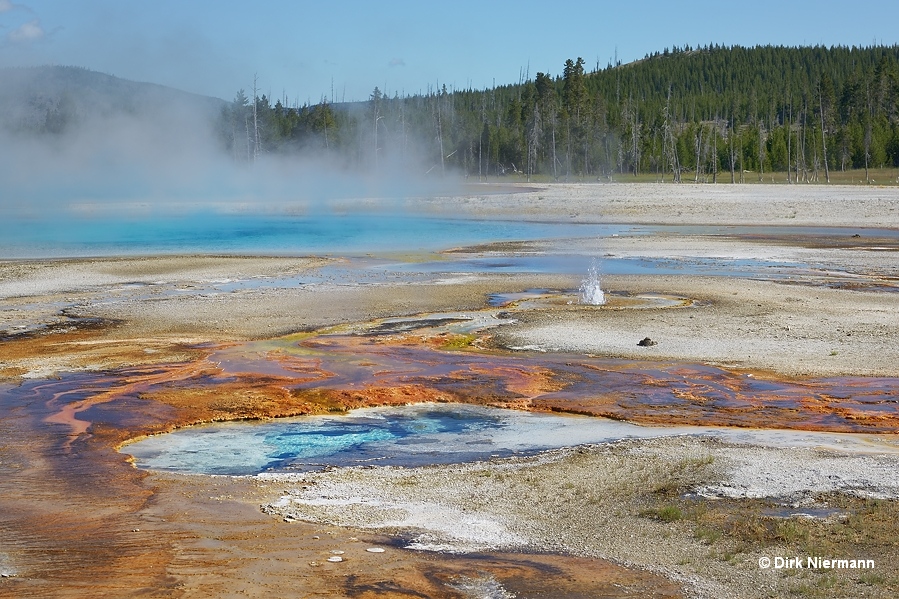
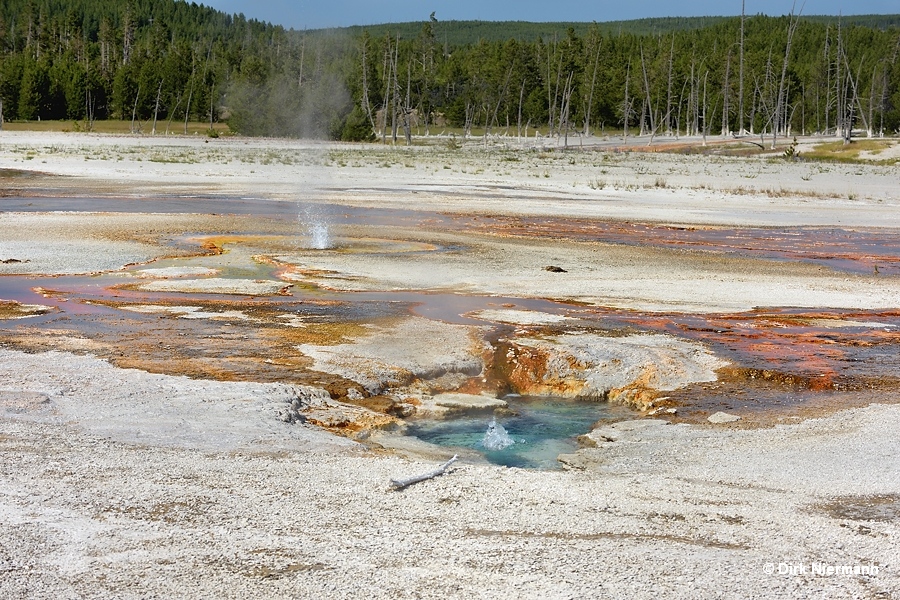
Since many years UNNG-BSB-5 seems to be predominantly a perpetual spouter.
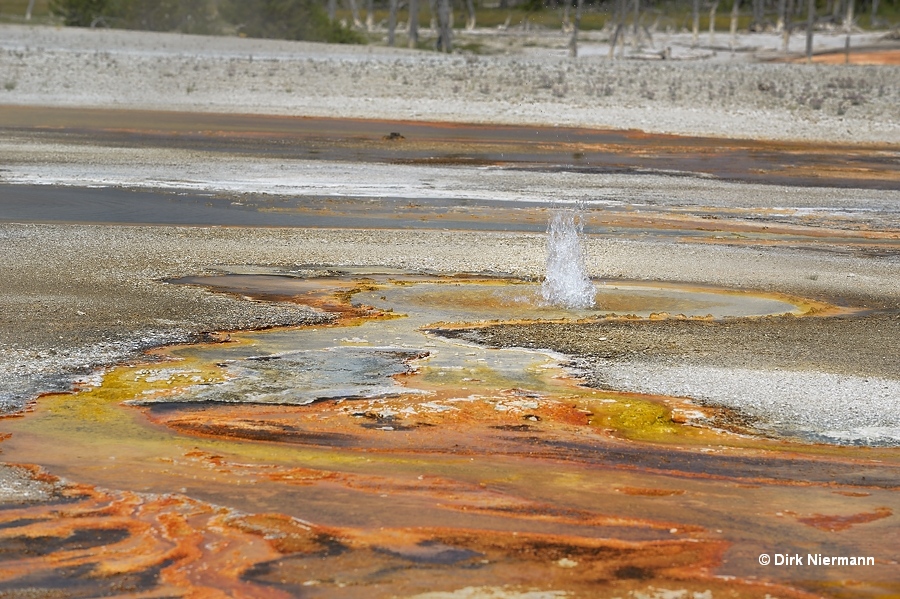
Handkerchief Pool, today nearly forgotten but at the beginning of the 20th century one of the most famous attractions of Yellowstone, lies between UNNG-BSB-5 and Rainbow Pool at some distance to the boardwalk. By contrast, in the first half of the 20th century a paved trail framed the spring and permitted direct access. Early park visitors put small textiles like handkerchiefs in the pool, watching them to be pulled into the vent by the convection current and to reappear after approximately two minutes. Unfortunately, Handkerchief Pool was vandalized in 1926 and nearly destroyed. Between 1929 and 1931 rangers and visitors used Handkerchief Geyser as a replacement for the clogged Handkerchief Pool because they found that it drew small textiles into a vent on the west side of the pool and gave them back after 20 seconds through another vent on the east side. But eventually also Handkerchief Geyser quit its service. The original Handkerchief Pool regained its old functionality not before it was restored by the National Park Service in 1950. On this occasion not only a jammed chunk of wood from the vent but also the remains of the paved, encircling walkway were removed. Since 1975 it is known that Handkerchief Pool sometimes even acts as a small geyser with eruptions up to 1 m (3 feet) high. Of course, it is no longer permitted to throw objects into the spring.
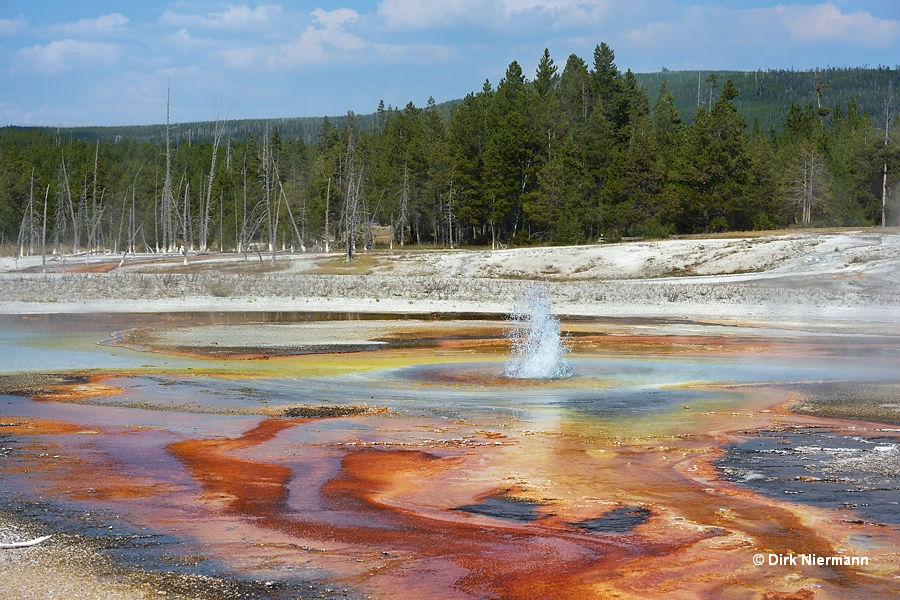
After the boardwalk to Sunset Lake has been rerouted a few feet to the west in May 2013, it's now easier to take photos from Rainbow Pool and Sunset Lake if you aim to catch the whole features in one shot. On the other hand, the larger distance and different orientation of the boardwalk provide inferior perspectives. Rainbow Pool is a powerful geyser, capable of erupting up to 30 m (100 feet) height and more. Eruptions are very rare, though. The last one occured in 1996.
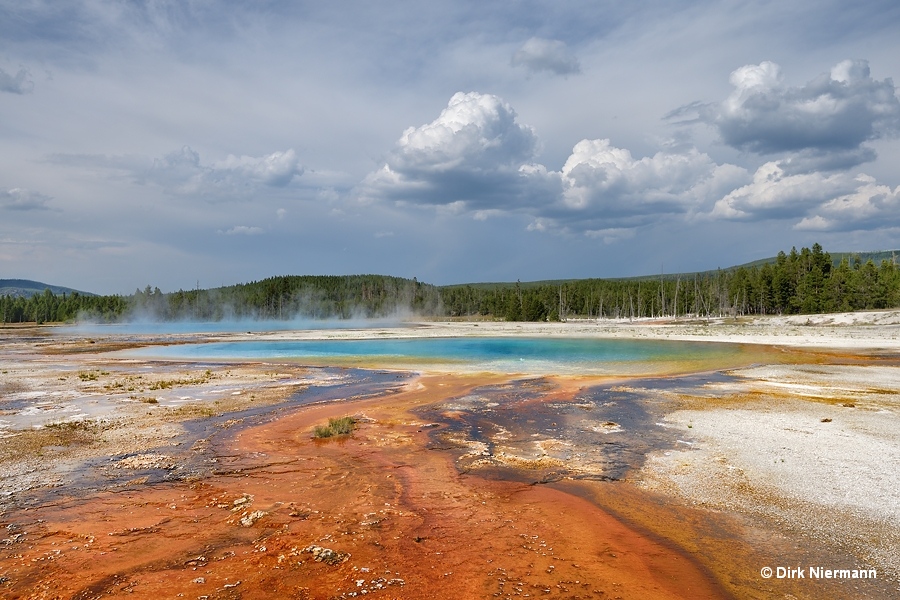
Patterns of currents on the surface indicate that Rainbow Pool includes more than one vent. Within the pool on the near side one of these vents emits small fountains from time to time, whereby it is hard to decide if this is a perpetual or intermittent spouting.
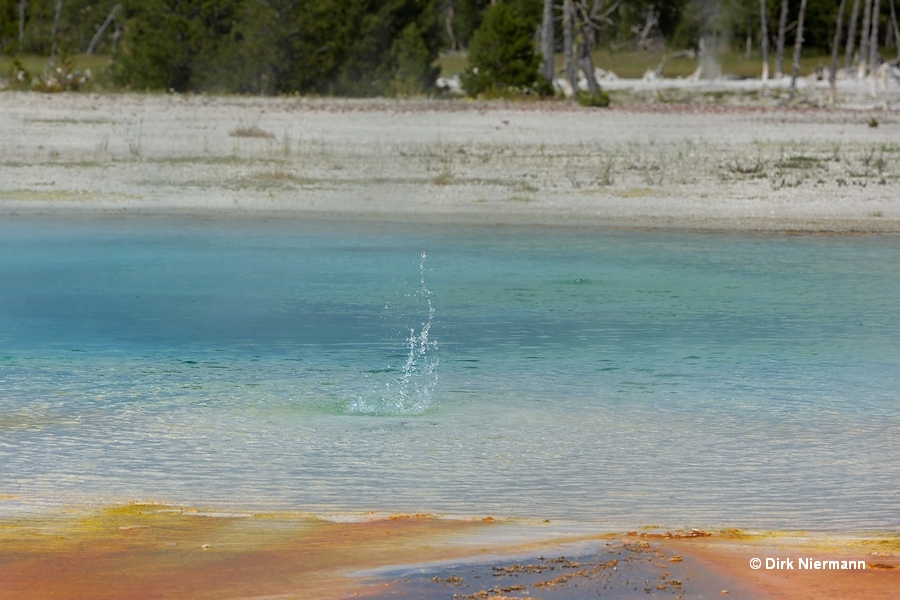
Sunset Lake, the largest pool on site, is a geyser, too. Even if eruptions up to 6 m (20 feet) height are known, it seems to be nearly dormant since 2003.
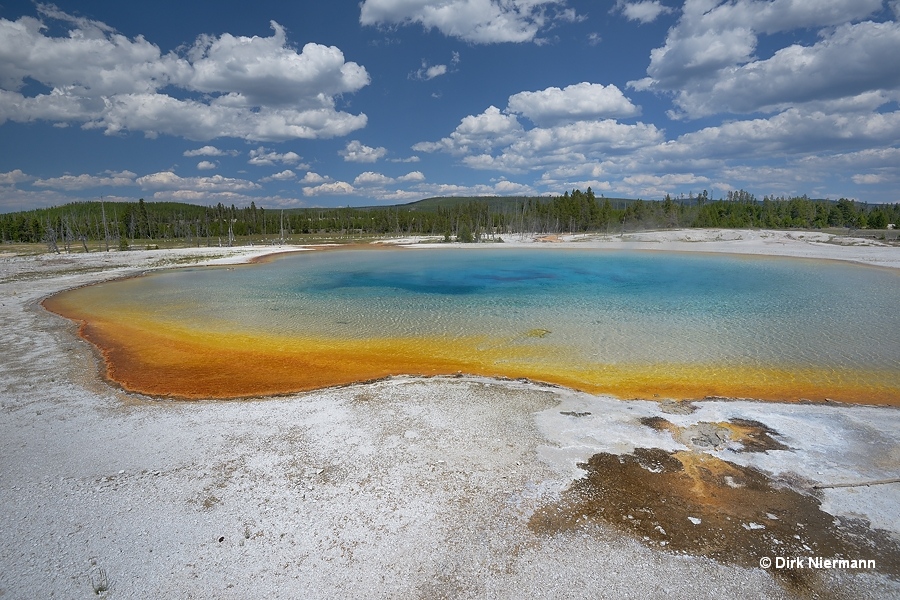
The relocation of the boardwalk in 2013 changed the view at Sunset Lake in a similar manner to the view at Rainbow Pool.
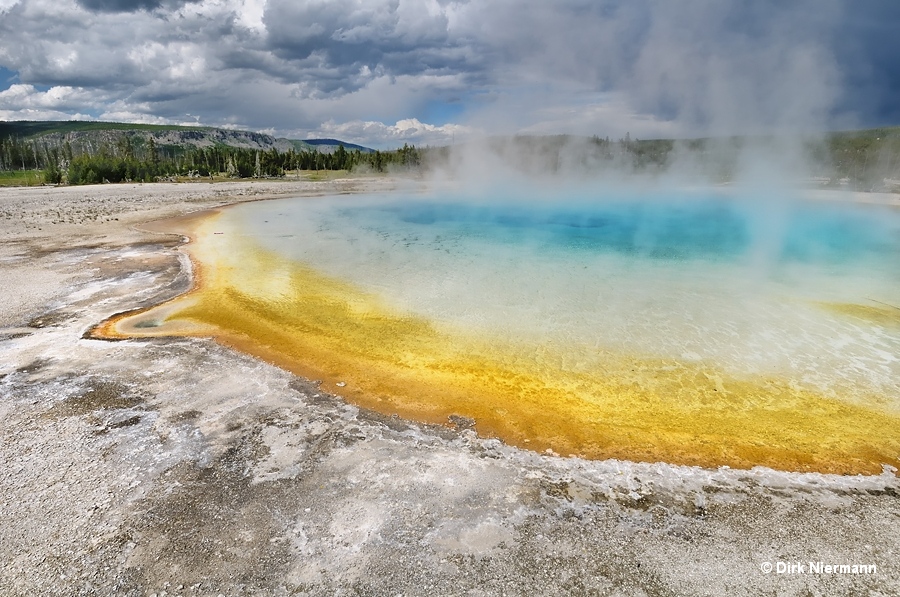
Page 1 2